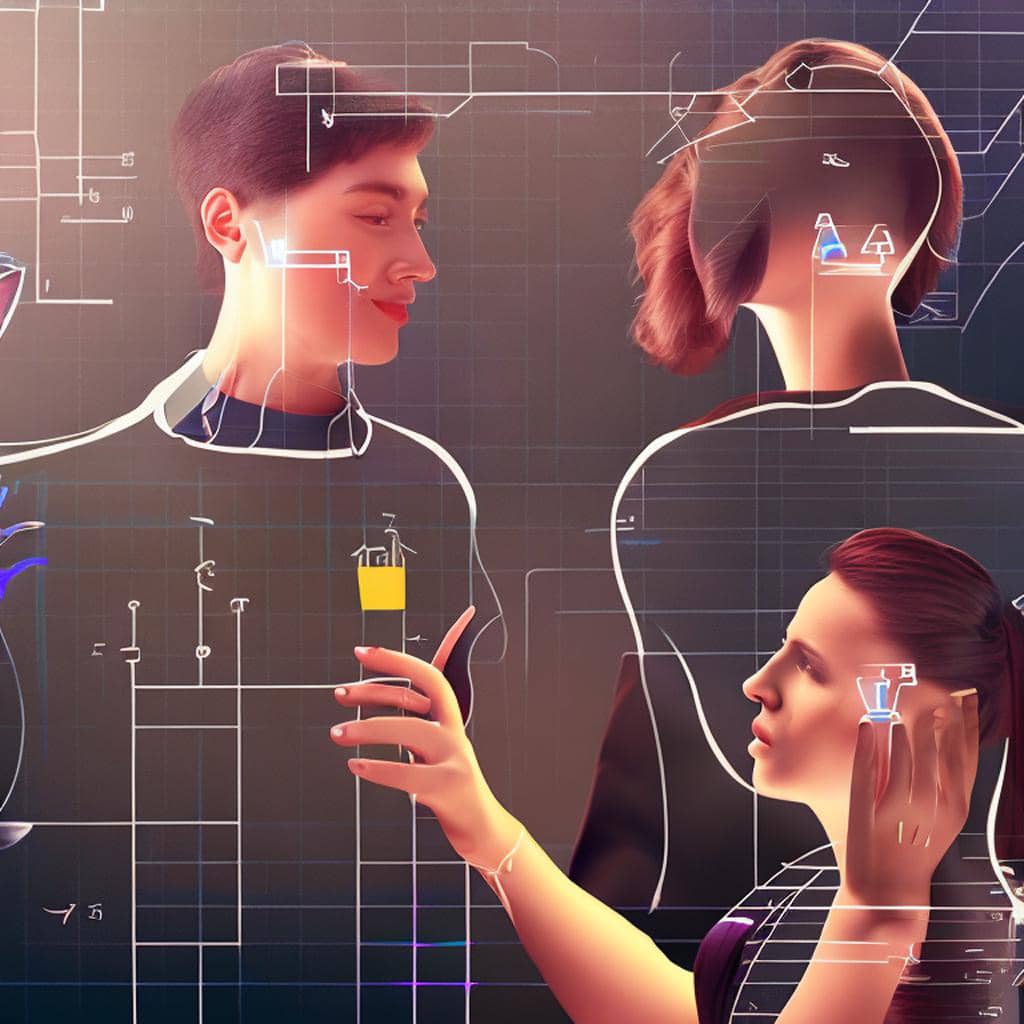AI and matchmaking
Artificial intelligence (AI) is transforming the way people approach matchmaking, from dating apps to team building and recruitment. While AI-powered matchmaking has the potential to improve the quality of matches and increase user satisfaction, it also raises important questions about ethics, bias, and privacy.
Here are some of the most relevant questions regarding AI and matchmaking:
How does AI matchmaking work?
AI-powered matchmaking uses machine learning algorithms to analyze user data and preferences and suggest compatible matches. The algorithms use data such as age, location, interests, and behavior to make predictions about users’ compatibility with each other.
Can AI truly understand human emotions and preferences?
While AI can analyze vast amounts of data and make predictions based on patterns and trends, it cannot fully understand the complexity of human emotions and preferences. Emotions and preferences are highly subjective and can vary depending on individual experiences and cultural contexts.
What are the risks of bias in AI matchmaking?
AI algorithms can be biased if the data used to train them is incomplete or contains inherent biases. For example, if a dating app’s algorithm is trained on data that disproportionately favors one race or gender, the algorithm may be biased against users from other races or genders. It’s important to ensure that the data used to train AI algorithms is diverse and representative of the user base.
How can we ensure privacy in AI matchmaking?
AI matchmaking requires access to sensitive user data such as location, interests, and behavior. It’s important to ensure that user data is protected and that users have control over how their data is used. App developers should be transparent about their data collection and privacy policies and provide users with the ability to opt-out of data collection.
Can AI matchmaking be ethical?
AI matchmaking can be ethical if it’s designed with transparency, fairness, and user empowerment in mind. App developers should be transparent about their algorithms and how they make match suggestions. They should also ensure that their algorithms are fair and unbiased and that users have control over how their data is used.
AI-powered matchmaking has the potential to improve the quality of matches and increase user satisfaction, but it also raises important questions about ethics, bias, and privacy. To ensure that AI matchmaking is ethical and effective, it's important to ensure that algorithms are transparent, fair, and unbiased, and that user data is protected and used with user empowerment in mind.

AI and problem-solving in couples or teams
AI can also be used for problem-solving in couples or teams. There are a variety of AI-based tools and platforms that can help individuals and teams identify problems, generate solutions, and make data-driven decisions. Here are some examples:
MindBridge Ai Auditor
MindBridge Ai Auditor is an AI-powered platform that helps auditors and accountants identify potential financial errors and fraud. The platform uses machine learning algorithms to analyze large amounts of financial data and identify anomalies and potential issues.
Talla
Talla is an AI-powered chatbot designed to help teams with knowledge management and problem-solving. Talla can answer common questions, provide resources, and escalate issues to the appropriate team members.
Kyndi
Kyndi is an AI-based platform that helps organizations analyze and interpret complex documents and data. The platform uses natural language processing and machine learning algorithms to identify patterns and insights in large amounts of text-based data.
Crystal
Crystal is an AI-powered tool that helps individuals and teams improve their communication and problem-solving skills. The tool analyzes users’ communication patterns and provides personalized recommendations for how to communicate more effectively.
Google AI Platform
Google AI Platform is a cloud-based platform that provides tools and resources for data analysis, machine learning, and predictive analytics. The platform can help individuals and teams identify patterns and insights in large amounts of data and use those insights to make data-driven decisions.
AI can be used for problem-solving in couples or teams by providing data analysis, machine learning, and predictive analytics tools. These tools can help individuals and teams identify problems, generate solutions, and make data-driven decisions. However, it's important to remember that AI should not be seen as a substitute for human interaction and decision-making. Successful problem-solving requires effective communication, collaboration, and a shared sense of purpose, which cannot be fully replicated by AI-based tools.
Apps presented in a table format for easy reference
| App Name | Purpose | Algorithm/Technology | Fields of Application |
| Shapr | Networking | AI | Business Connections |
| RippleMatch | Recruitment | Machine Learning | Job Opportunities |
| Team Builder | Team Building | Proprietary | Employee Collaboration |
| Meetup | Social Networking | AI | Social Events and Meetups |
| MentorCruise | Mentorship | AI | Mentor-Mentee Relationships |
| MindBridge Ai Auditor | Problem-Solving | Machine Learning | Financial Error and Fraud Detection |
| Talla | Problem-Solving | AI Chatbot | Knowledge Management and Issue Escalation |
| Kyndi | Problem-Solving | Natural Language Processing and Machine Learning | Data Analysis and Interpretation |
| Crystal | Problem-Solving | AI | Communication Improvement and Personalized Recommendations |
| Google AI Platform | Problem-Solving | Machine Learning and Predictive Analytics | Data Analysis, Machine Learning, and Predictive Analytics |

Text with help of openAI’s ChatGPT Laguage Models & Fleeky – Images with help of Picsart & MIB
Thank you for questions, shares and comments!
Share your thoughts or questions in the comments below!






